I am trying to bring in JIRA data into Foundry using an external API. When it comes in via Magritte, the data gets stored in AVRO and there is a column called response. The response column has data that looks like this...
[{"id":"customfield_5","name":"test","custom":true,"orderable":true,"navigable":true,"searchable":true,"clauseNames":["cf[5]","test"],"schema":{"type":"user","custom":"com.atlassian.jira.plugin.system.customfieldtypes:userpicker","customId":5}},{"id":"customfield_2","name":"test2","custom":true,"orderable":true,"navigable":true,"searchable":true,"clauseNames":["test2","cf[2]"],"schema":{"type":"option","custom":"com.atlassian.jira.plugin.system.customfieldtypes:select","customId":2}}]
Due to the fact that this imports as AVRO, the documentation that talks about how to convert this data that's in Foundry doesn't work. How can I convert this data into individual columns and rows?
Here is the code that I've attempted to use:
from transforms.api import transform_df, Input, Output
from pyspark import SparkContext as sc
from pyspark.sql import SQLContext
from pyspark.sql.functions import udf
import json
import pyspark.sql.types as T
@transform_df(
Output("json output"),
json_raw=Input("json input"),
)
def my_compute_function(json_raw, ctx):
sqlContext = SQLContext(sc)
source = json_raw.select('response').collect() # noqa
# Read the list into data frame
df = sqlContext.read.json(sc.parallelize(source))
json_schema = T.StructType([
T.StructField("id", T.StringType(), False),
T.StructField("name", T.StringType(), False),
T.StructField("custom", T.StringType(), False),
T.StructField("orderable", T.StringType(), False),
T.StructField("navigable", T.StringType(), False),
T.StructField("searchable", T.StringType(), False),
T.StructField("clauseNames", T.StringType(), False),
T.StructField("schema", T.StringType(), False)
])
udf_parse_json = udf(lambda str: parse_json(str), json_schema)
df_new = df.select(udf_parse_json(df.response).alias("response"))
return df_new
# Function to convert JSON array string to a list
def parse_json(array_str):
json_obj = json.loads(array_str)
for item in json_obj:
yield (item["a"], item["b"])
